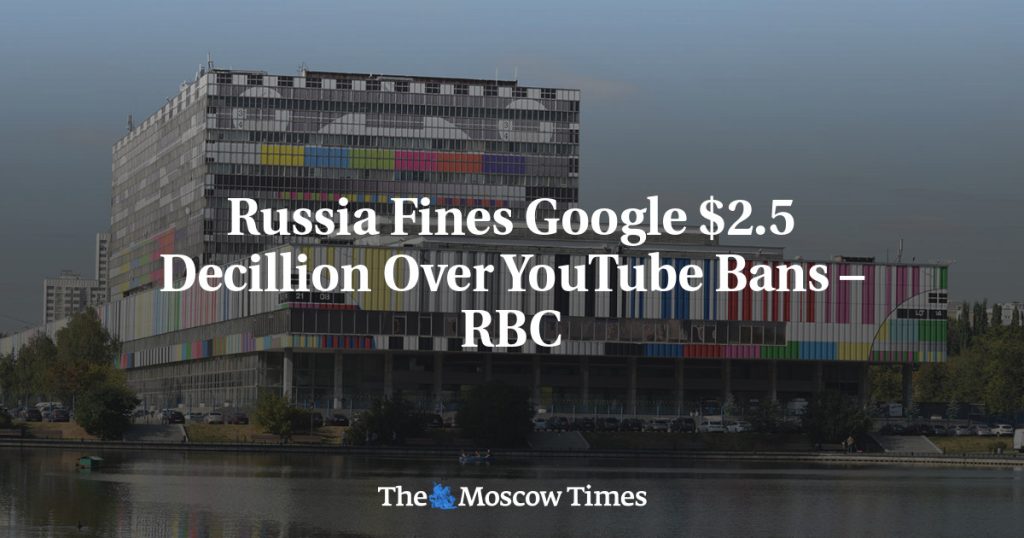Google has accumulated approximately 2 undecillion rubles ($2.5 decillion) in fines in Russia after years of refusing to restore the accounts of pro-Kremlin and state-run media outlets. These fines were imposed as a result of lawsuits filed by pro-government media outlets Tsargrad and RIA FAN for blocking their YouTube channels, with daily penalties starting at 100,000 rubles in 2020 and doubling each week. The total fine has now reached an astronomical amount that Google is unlikely to pay, given its parent company Alphabet’s reported revenue of over $307 billion in 2023.
A total of 17 Russian TV channels have filed legal claims against Google, including state-run Channel One, the military-affiliated Zvezda broadcaster, and a company representing RT editor-in-chief Margarita Simonyan. YouTube, which is owned by Google, blocked several Russian state-run media outlets due to their support of the full-scale invasion of Ukraine. In response, Moscow imposed fines on Google but did not block the website. Google’s Russian subsidiary filed for bankruptcy in the summer of 2022 and was officially declared bankrupt last fall. Additionally, Alphabet Inc’s Google ceased advertising in Russia to comply with Western sanctions related to the war in Ukraine.
The fines imposed on Google highlight the ongoing tensions between the tech giant and Russian authorities over the censoring of pro-Kremlin and state-run media outlets. Despite Google’s massive financial resources, the amount of the fine in Russia far exceeds what the company is likely able or willing to pay. This situation underscores the potential consequences tech companies face when they do not comply with local regulations and legal judgments, especially in countries where the government has a strong influence over media and information dissemination.
The lawsuits and fines against Google represent a broader crackdown on independent media and dissenting voices in Russia, where the government has tightened control over information and social media platforms in recent years. By targeting tech companies like Google for perceived violations, Russian authorities are sending a clear message about the consequences of defying state directives and regulations. This move reflects a larger trend of authoritarian governments exerting control over the flow of information and stifling dissent through legal measures and punitive actions against foreign entities.
The decision to fine Google millions of rubles for blocking the accounts of pro-Kremlin and state-run media outlets raises questions about the limits of government authority and the role of tech companies in facilitating access to information and freedom of expression. While Google has faced criticism for its handling of controversial content and its compliance with government requests, the massive fines imposed in Russia demonstrate the potential risks and costs for companies operating in repressive environments. The case also highlights the challenges for international tech companies navigating global regulations and political tensions while upholding their values and principles in the face of government pressure.
Overall, the situation involving Google’s fines in Russia underscores the complex interplay between technology companies, government regulations, and freedom of expression in an increasingly digital and interconnected world. As tech giants like Google continue to wield significant influence over the flow of information and public discourse, they face mounting pressure to balance competing interests and navigate the legal and political landscape of different countries. The fines imposed on Google in Russia serve as a stark reminder of the risks and challenges involved in operating in environments where government control over media and information is pervasive, and where the consequences for non-compliance can be severe and far-reaching.














